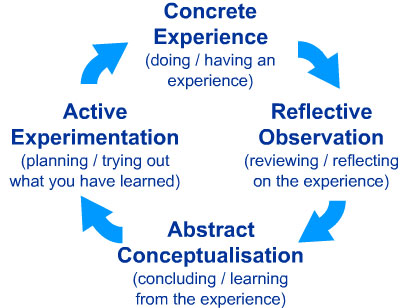Roleplay: the word that strikes terror into the hearts of many delegates. I’ve had some walk in and – even before saying hello – they’ve told me in no uncertain terms that they hate roleplay and won’t be doing it. “That’s fine. Why not just observe and then if you want to, you can,” is my response. And guess what? They all end up having a go and enjoying it, or at least getting something from it.
Should we do it? Is it really helpful?
I have two ways of looking at this – one, based on my own gut feeling, and the other based on research.
My gut tells me that theory is easy and practice is hard. We all know what an open question is compared to a closed one – any group will nod confidently when asked about this. But when you go around and ask them to ask an open question about your garden at home, without fail, more than half will ask closed questions… and a few won’t even be able to think of a question!
Is it because you’ve put them on the spot?
Well, yes. And that’s what their work-life is like: they’re always being put on the spot – in sales meetings, in difficult conversations with team members, and in performance management discussions.
Theory and practice are two different worlds, and to cement one, you have to do the other. Roleplay helps cement theory, as well as reproducing the pressure of real situations.
All this fits with established theory. Kolb’s learning cycle specifically supports experimentation as a vital cog in the learning wheel:

You’ve got to try it out, as well as think about it!
Clearly, there are good roleplays and bad roleplays. Getting the balance right is important. Too real and delegates can get bogged down in technical detail – “it wouldn’t be like this in real life.” Too abstract and it feels irrelevant – “How does my role as a Patient Access Manager relate to pretending to be a pet grooming salesman looking for more poodle owners?”
As always, all roads lead to Feedback. Being able to identify simple changes that can be made to existing behaviour to increase performance gives people a takeaway that they can apply in the big, bad real world.
It’s flawed, potentially uncomfortable, and tough to manage… as well as being fun, surprising and potentially rewarding.
But it’s like real life.
So it has my vote.
To inspire your team with roleplay simulations that will cement their theoretical knowledge and give them the resilience to deal with real-life situations, get in touch.

David Solomon
Managing Director, Sun and Moon Training
